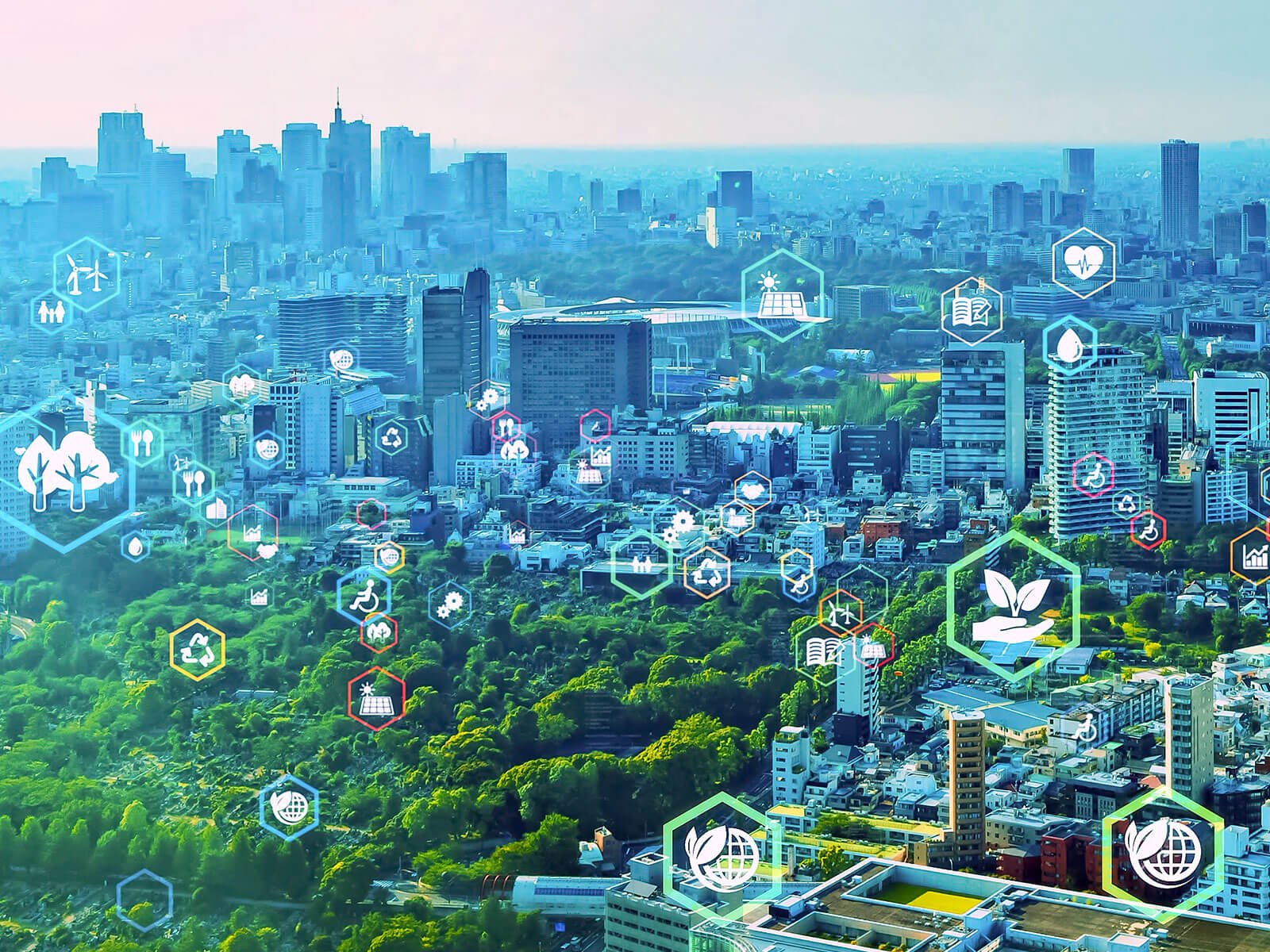In a constantly evolving world, the cities of the future are emerging as hubs of innovation and efficiency, particularly in the realms of logistics and manufacturing. With technological advancements and growing global interconnectedness, cities are adopting new approaches to tackle logistical challenges and enhance manufacturing processes. Discover how innovation is reshaping the way cities operate in terms of logistics and manufacturing, and how these transformations will impact our lifestyle.

Transportation revolution: Shaping the future of mobility
One hallmark of cities of the future is the logistics revolution they are undergoing, propelled by Artificial Intelligence, the Internet of Things (IoT), and data analytics. These implementations are reshaping mobility within cities. Smart public transportation systems, the rise of autonomous vehicles, and green transportation networks are alleviating traffic congestion and pollution.
With real-time data-driven traffic management systems adjusting traffic lights and public transportation routes based on traffic conditions, efforts are underway to enhance traffic flow and reduce carbon emissions by minimizing the time vehicles spend idling at traffic lights.
Additive manufacturing and mass customization: Shaping the future of production
Manufacturing is also undergoing a revolution, thanks to technologies like 3D printing and additive manufacturing. These processes enable the creation of three-dimensional objects layer by layer, opening the door to mass customization. Additive manufacturing is also transforming the construction industry with the use of giant 3D printers to build more sophisticated housing structures, speeding up the construction process and reducing costs.
Cities of the future could witness the proliferation of factories producing goods on demand, thus reducing the need for extensive supply chains and long-distance transportation. Manufacturers are now considering increased investments in smart connected products through IoT to access supply performance data and analyze the advantages of each supplier. This aligns with the need for better control, a focus on minimizing resource wastage, and reducing risks in supply chains, aiming to achieve resilient, flexible, and transparent chains.
Sustainability spotlight: New focus on environmental responsibility
In an increasingly conscientious world about the need to care for our planet, sustainability has become a cornerstone in the construction of cities of the future. Within this vision, sustainable buildings emerge as one of the fundamental pillars; these structures are designed not only to be energy and resource-efficient but also to enhance the quality of life for their inhabitants.
These constructions are characterized by their efficient design and the use of sustainable materials, maximizing natural light and ventilation to reduce the need for artificial lighting and air conditioning. Energy efficiency is another highlight of sustainable construction. These structures incorporate advanced insulation systems, high-efficiency windows, and technologies such as integrated solar panels or wind turbines that generate clean energy, reducing dependence on fossil fuels and decreasing carbon emissions.
Smart resource management is key to sustainable construction. Rainwater harvesting systems are used for irrigation and supplying non-potable water, while wastewater treatment facilities return clean water to the environment. Waste management is also optimized with on-site recycling and composting systems.
Cities of the future are also committed to sustainable actions and the use of the circular economy in their manufacturing and logistics processes. The circular economy aims to reduce, reuse, and recycle materials to minimize waste and pollution, departing from the linear model that generates a high volume of waste. Cities are adopting more circular systems. On the other hand, manufacturing is seeking to identify the best materials for the future that can be allies in production and consumption toward a greener point. These actions have become a priority alongside the use of renewable energy sources and the optimization of production processes to reduce pollutant emissions.
Automation evolution: Crafting the future of efficiency
The implementation of task automation in manufacturing not only enhances operations but also fosters resilience, reduces risks, decreases costs, and improves the quality of life for workers. Kathy Wengel, Executive Vice President, Head of Technical Operations and Risks at Johnson & Johnson, notes, ‘Technology and customer needs continue to drive improvements in the manufacturing industry.’
The push for a workforce connected with new technologies is part of the cities of the future. Microsoft data reveals that 63% of manufacturing workers remain optimistic about the job opportunities technology is creating, from streamlining tasks to enhancing efficiency, safety, and engagement. The industrial metaverse, machine learning, cloud utilization, and robotics, among other initiatives, are elevating technological tools in manufacturing hand-in-hand with the workforce.
Cities are becoming more efficient and sustainable, leading to a transformation in logistics and manufacturing that promises to make our lives more efficient and sustainable. The combination of technologies such as artificial intelligence, IoT, and additive manufacturing is redefining how goods move within cities and how products are produced. As cities adopt innovative solutions like autonomous delivery and the circular economy, we are witnessing a transition toward smarter and more sustainable systems. These innovations will positively impact the efficiency and quality of life for citizens, laying the groundwork for a world where innovation, technology, and sustainability converge to create more resilient and prosperous urban environments.
At VYNMSA, we recognize the pivotal role industrial warehouses play in shaping the cities of the future. These spaces are not only vital for the manufacturing, storage, and distribution of goods but also serve as a cornerstone in addressing the evolving needs of a constantly growing population.
By Embracing technologies and practices that curtail carbon emissions, champion energy efficiency, and minimize environmental impact, we provide versatile industrial real estate solutions tailored to the ever-changing demands of businesses. This flexibility enables future cities to swiftly adapt to emerging economic and technological trends.
Connect with us to share your project details and grow alongside VYNMSA – where innovation meets real estate for a sustainable future.
